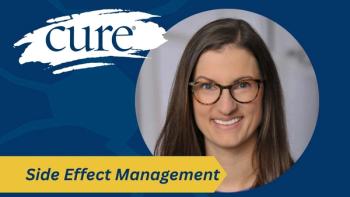
- CURE® Winter 2021
How Cold Weather Affects Patients with Cancer
Winter brings added challenges for patients with cancer. Here's what you need to know to take into consideration as the weather gets colder.
Winter can be hard for many people, but for patients with
Patients with cancer are more susceptible to hypothermia
Hypothermia is a condition where the human body begins to lose heat faster than it can produce it, causing the body temperature to become dangerously low. Side effects of cancer treatment, such as fatigue, dehydration and anemia, can make patients more susceptible to hypothermia as they may lose heat much faster.
Frostbite is a bigger risk for patients with cancer
Some treatments can cause peripheral neuropathy, which carries numbness in the extremities as a potential side effect. Patients who have peripheral neuropathy are more likely to get frostbite since they can't feel how cold their fingers and hands are in cold weather already.
Patients will have a higher risk of falling
Patients can have a higher risk of fracture if they are receiving treatments that affect bone density. Patients with cancer also need to be especially careful if they have thrombocytopenia, a condition associated with blood cancers that cause low platelet counts. Since platelets help blood clot, a low count can mean that bruising or serious bleeding can happen when injured. Patients who have numbness in their feet are also more prone to falls.
Having A Higher Risk for Complications with the flu
Cancer therapy may weaken patients’ immune systems. It is necessary that they get their flu shot since they don't have enough white blood cells to fight infections. This is why patients with cancer have a higher chance of having complications from the flu than a healthy person.
Tips to Stay Safe
Follow these tips to protect your health or a loved one in winter and stay safe:
- Stay inside as much as you can when temperatures are freezing or when low temperatures are accompanied by rain or high winds.
- Make sure your walkways are always cleared of ice and snow.
- If you need to go outside, make sure to bundle up in layers. Put on a hat that covers your ears, especially if therapy has caused you to lose your hair. Wear heavy gloves, thick socks and warm boots with good treads.
- Protect your skin. Therapy can make your skin itchy, dry and cracked, especially when the humidity level drops. Use lip balm and moisturizers regularly and avoid long, hot showers and baths. Consider getting a humidifier.
- Stay hydrated and drink plenty of non-caffeinated liquids regularly.
If you’d rather avoid winter and the risks it carries for cancer patients, you can always consider health tourism. It’s the practice of traveling to a popular tourist destination with the purpose of receiving therapeutic treatment. For example, Florida has mild, pleasant winters, which make it an ideal location for “health tourism!” Winter won't last forever, even if you sometimes feel that way, so celebrate each sunny day!
For more news on cancer updates, research and education, don’t forget to
More than a thousand men and women diagnosed with cancer each year turn to our trusted
Articles in this issue
almost 5 years ago
A Non-Small Cell Lung Cancer Survivor Shares Her Storyalmost 5 years ago
What’s Next After Hedgehog Therapy Fails for Basal Cell Carcinoma?almost 5 years ago
Examining Racial and Ethnic Disparities in Cancer Carealmost 5 years ago
Bringing Clinical Trials in Cancer Closer to Homealmost 5 years ago
Understanding the Emotional Aspects of the Cancer Journeyalmost 5 years ago
Coping With Cancer Treatment’s Effects on Skinalmost 5 years ago
Cancer Sees Color: Investigating Racial Disparities in Cancer Carealmost 5 years ago
Advocating for Herself Amid Treatment for a Rare Canceralmost 5 years ago
Know Your Options When It Comes to Pancreatic Cancer


